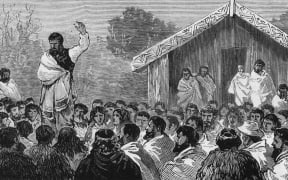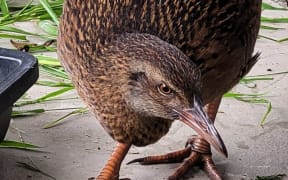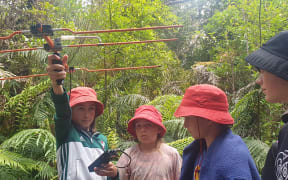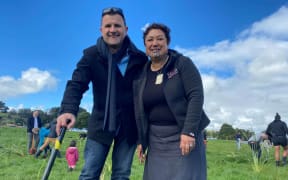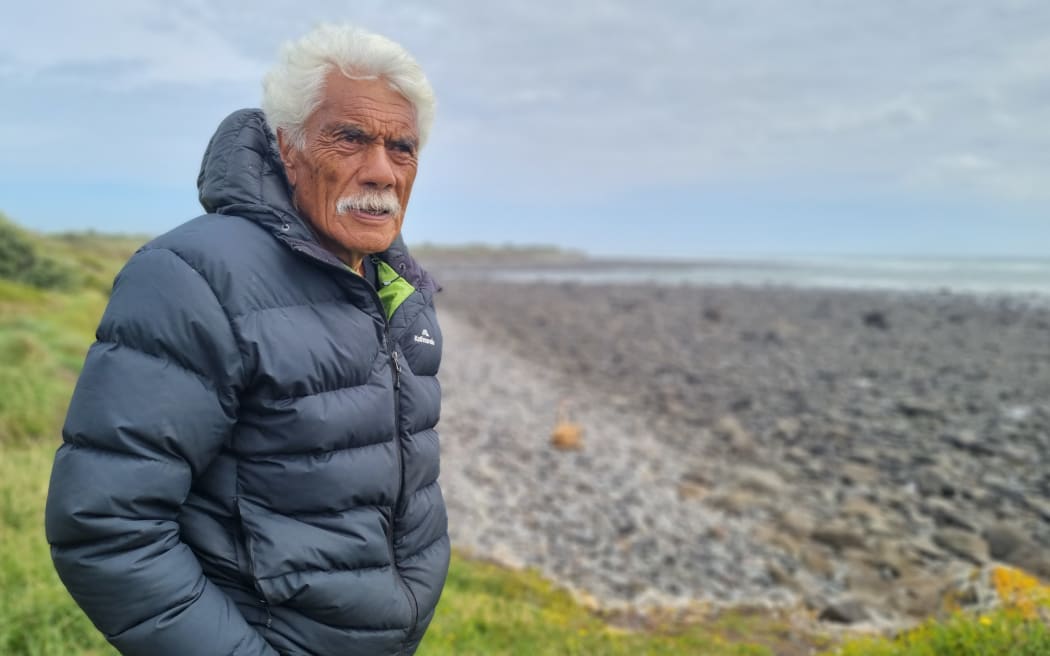
Mahara Okeroa was instrumental in establishing a customary rāhui on the taking of seafood along the coast between New Plymouth and Ōpunake in 2022. Photo: Robin Martin
A Parihaka kaumātua hopes a 70km stretch of the Taranaki coastline will eventually become a mātaitai, or customary fishing reserve.
Mahara Okeroa was instrumental in establishing a customary rāhui on the taking of seafood along the coast and it later becoming legally enforceable.
The rāhui won the Action in the Community prize at the Taranaki Regional Council Environmental Awards last night.
The rocky inter-tidal reefs of Taranaki are a feature of the region's windswept coastline.
Mahara Okeroa remembered as a child they were teeming with sea life.
"It was abundant because there was a whole range of ... protocols or tikanga around the harvesting of whatever food source was available, be it crayfish, be it fish, be it pāua, be it kina, be it a whole myriad of crustaceans or seaweed.
"Between the rivers and Tangaroa out here and whatever little bit of land we had in terms of intensive gardening, the sea then or Tangaroa was a very significant factor in our survival."
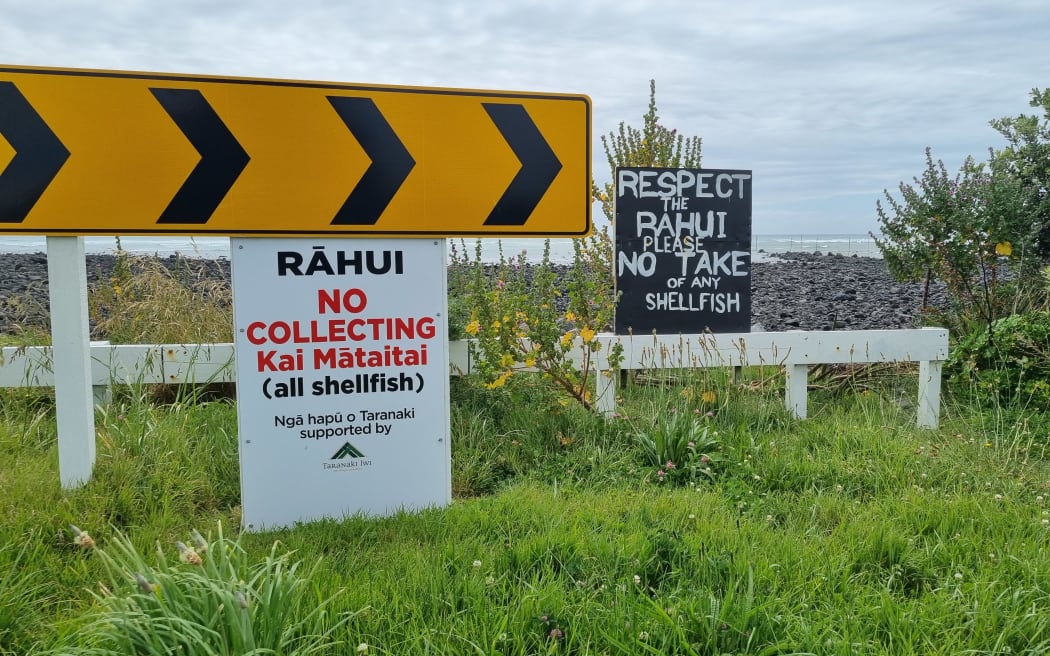
A customary rāhui has been in place on the Taranaki coast between New Plymouth and Ōpunake since January 2022. Photo: Robin Martin
When Okeroa returned to Taranaki decades later, a drive along the coast shocked him.
"I was absolutely stunned because of the numbers of ... every form of vehicle you could imagine, including buses that came from out of the region, and the number of people who were on our reefs without due regard and respect."
In January 2022, hāpu put in place a rāhui to protect the marine environment, stretching from New Plymouth to Ōpunake.
A two-year legally enforceable ban supported by Fisheries New Zealand and the police came into force later that year in December.
Okeroa said support from the wider community for the rāhui gave him grounds for optimism.
"The nature of what has happened in other places ... with the over-exploitation of natural resources... I think it is percolating through people's consciousness at the moment and they see a need to preserve this as well - not just for the moment but ... for the future."
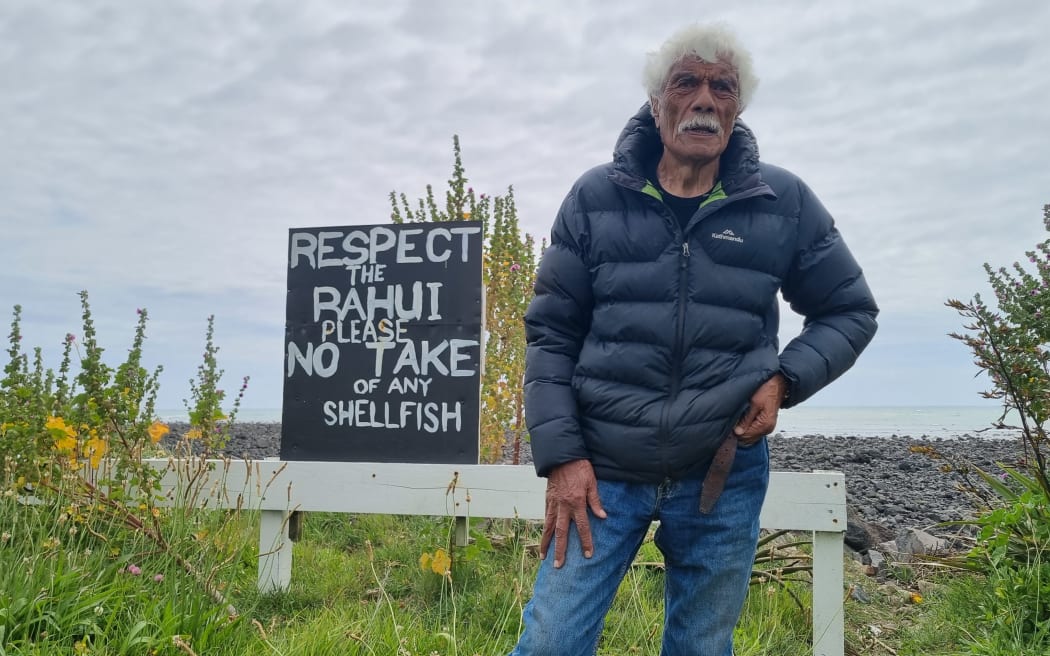
Mahara Okeroa next to the rāhui sign. Photo: Robin Martin
He dreamed of the reefs returning to their former glory.
"I hope that these reefs that are along the coastline will return to the state under which they were when I was very young. So, it doesn't matter when people say, 'Hell, there's a lot of pāua out there.' So, what's wrong with that? That's not an excuse to start the rape and pillage again."
He hoped the rāhui could be extended to allow time for a mātaitai, or customary reserve, to be established where commercial fishing was banned and hāpu recommended bylaws on customary and recreational catch.
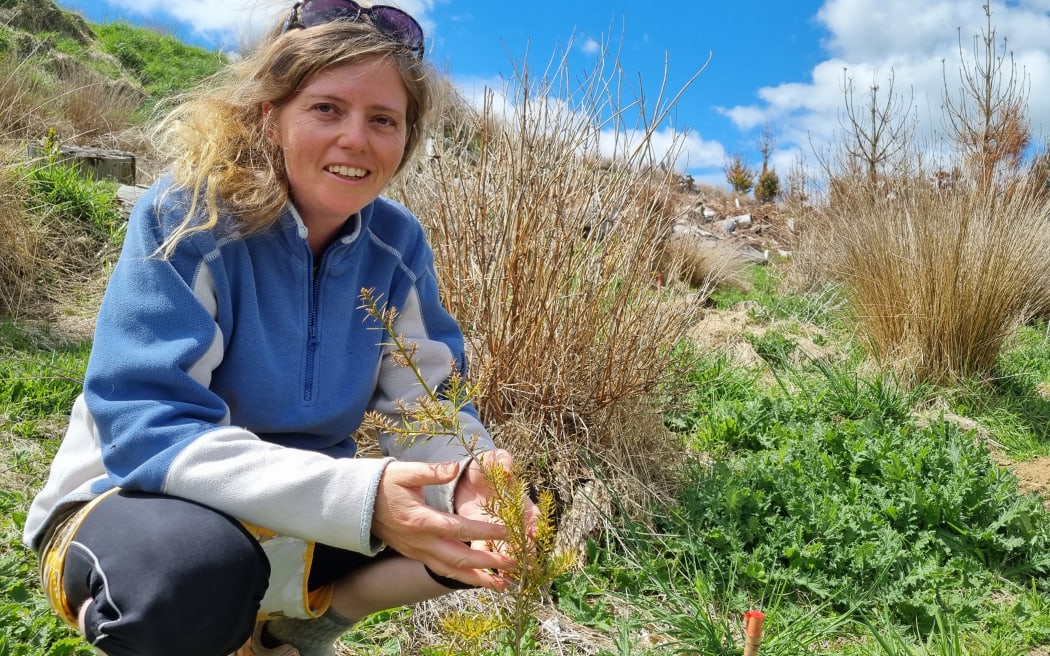
800 Trust trustee Miranda Wells runs her fingers through a totara seedling, part of planting to return 2000ha of East Taranaki farmland to the wild. Photo: Robin Martin
Action in Biodiversity
The 800 Trust won the Action in Biodiversity prize for its work to return 2000 hectares of retired farmland in East Taranaki to the wild.
On a tour of the land, trustee Miranda Wells told RNZ the project was named after the first 800 acres the trust bought.
"This block has been known as the 800 block since the 1960s ... and we're just starting to get into the manuka, [which] is about 20 years old."
She said rather than cutting down the manuka, as would have been the case in the past, the trust was letting it work its magic.
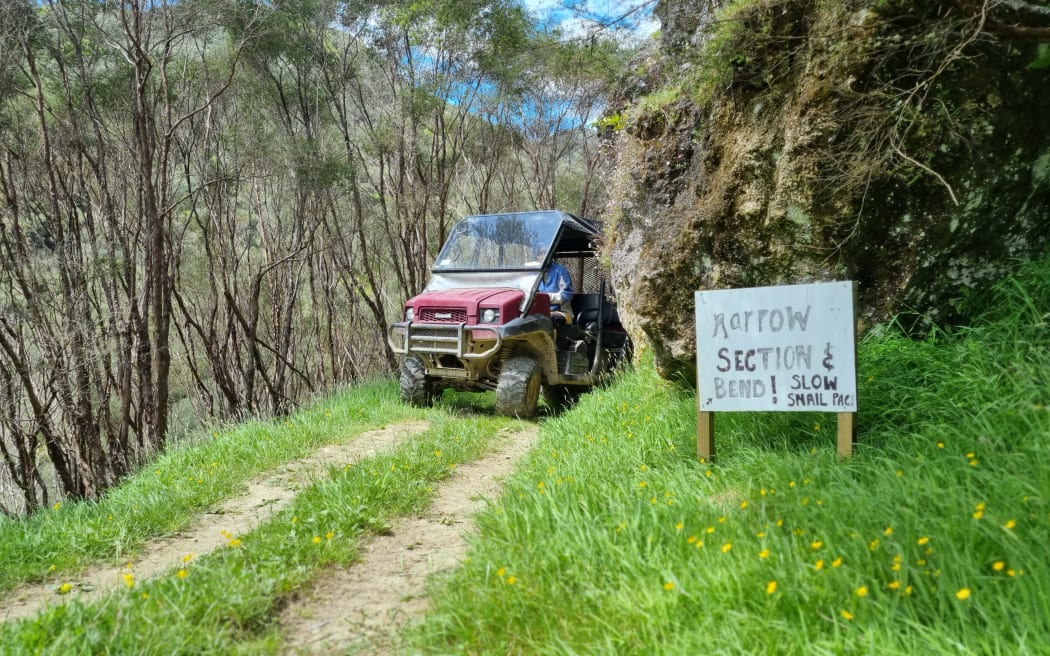
Manuka growing in the 800 block will eventually give way to native hardwoods such as rimu. Photo: Robin Martin
"It allows those more hardwood ... and more delicate trees like the rimu to get established. [They] have that shade and then it will slowly grow and push through. The manuka, which has a much shorter life expectancy than the rimu, will just fall over. Isn't nature amazing?"
Miranda Wells said the 800 Trust had planted more than 100,000 native plants over the past decade and installed hundreds of pest traps that were used in conjunction with a state-of-the-art WiFi network.
"We've got totara, nīkau, cabbage trees, kahikatea, rata - lots of trees that native birds will benefit from."
She said being able to establish WiFi connectivity in such a remote location meant the trust could use cameras and other technology so their traps were used at maximum efficiency.
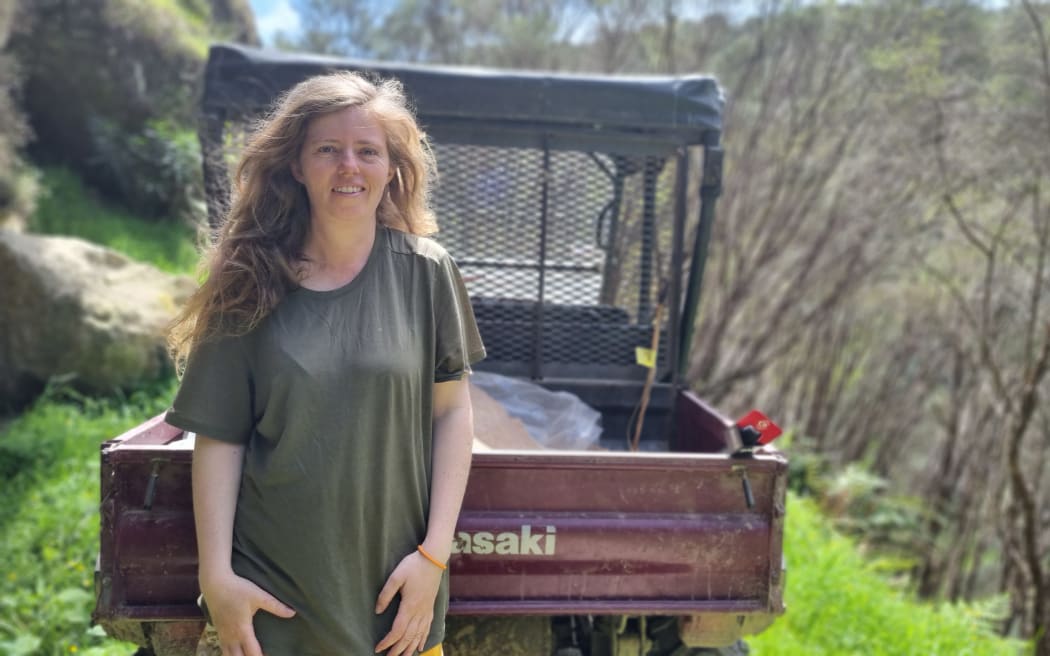
Miranda Wells against a quad bike after a drive through the 800 block where manuka are beginning to take over. Photo: ROBERT KITCHIN/THE POST
Long term, it was hoped the 800 Trust's land would provide a link through to the Whanganui National Park.
"In collaboration with Rotokare, we're really keen to establish a biodiversity corridor. (This) would allow some of their awesome rare birds to move out of their predator-proof fenced sanctuary and move along a corridor through three landowners and into this bird food forest we're currently in.
"Then those birds can move along to the Matemateāonga Range, which is the Waitōtara conservation area and ... goes all the way to the Whanganui River."
In a sign of the trust's success, earlier this year it was chosen as the new home for 11 kiwi from the Rotokare Scenic Reserve.
The winners from the Taranaki Regional Council Environmental Awards:
- Environmental Action in the Community: Rāhui Tīma
- Environmental Action in Education: Ōpunake Community Kindergarten
- Youth Environmental Leader (joint winners): Arabella Barber, Stratford High School & Amber Cayley, Sacred Heart Girls' College
- Environmental Leadership in Farming: Glenn and Lynda Howatson
- Environmental Leadership in Climate Action: Nova Energy
- Environmental Action in Water Quality Improvement: Taranaki Catchment Communities
- Environmental Action in Biodiversity: The 800 Trust
